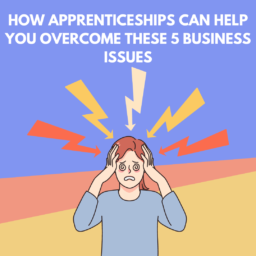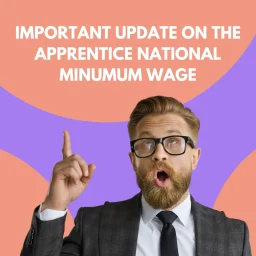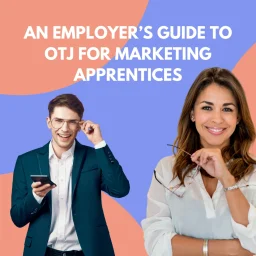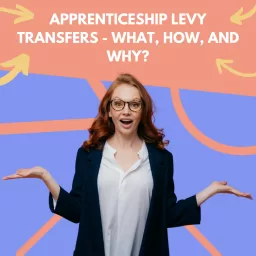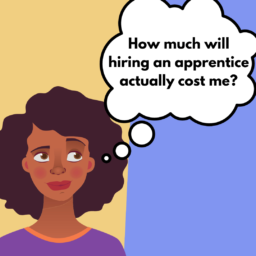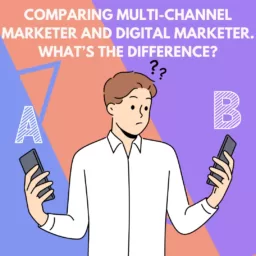You’re considering hiring a marketing apprentice
So, you’ve been considering hiring a marketing apprentice, you’ve looked at some content, and visited a few Training Provider websites, but you’re still not 100% sure of how the process works. If this is you, read on.
When it comes to hiring an apprentice, there are a few additional steps involved over bringing on regular employees. If this is your first rodeo with apprenticeships, you’ll need to consider:
- Selecting the right apprenticeship program;
- Funding the training;
- And choosing a suitable training provider.
Don’t worry, it’s not as complex as it sounds. Let’s get started.
Defining what the apprentice will actually do – Their role
Your journey begins with identifying a need and defining the specific role that hiring an apprentice would solve. It could be an entry-level position, a middle-weight position that you want to further develop, or perhaps a more challenging role you’re looking to fill. The easiest is obviously the entry-level role. However, there are always additional considerations.
Get to know the rules of apprenticeships
No, I’m not suggesting you sit down with a cup of tea and read an entire apprenticeship regulation handbook. That’s all very dry and won’t really do you any good.
At this early stage, it’s important to consider the eligibility requirements and basic rules associated with employing an apprentice. For instance, it’s essential to recognise that new apprentices are entitled to the same rights as your existing employees. One element that often catches employers out is that there are no age limits to apprenticeships, but apprentices must be at least 16 years old. Additionally, you are obligated to pay apprentices at least the National Minimum Wage for their respective age group. All of this can be discussed with your chosen Training Provider though, so again, please, for the good of the trees, don’t print off any apprenticeship rules and guidance!
The agony of choice, finding the right provider
Some may argue that you may want to decide on which apprenticeship standard is right for your role before choosing a Training Provider. However, we feel that it’s far more effective to simply talk to an expert for an hour than do ten hours of research on standards. Any apprenticeship provider worth their weight will discuss your requirements and determine which standard may be best for your role and organisation. Be careful with this though as some providers only offer a single standard in any one topic or discipline so their game plan may focus on selling you that that standard does everything on the tin. Also, consider their training delivery, curriculum, value-added services, and overall reputation. We’ll be writing a more detailed and unbiased article on this later so make sure to sign up for our newsletter.
Apprenticeships are a nightmare without the right standard!
Please, please, please heed this advice. As a former Coach at various OFSTED grade 1 providers, I’ve seen hundreds of apprentices put on the wrong standards for their roles. It makes the process a nightmare and everyone just ends up regretting their life choices. Now, it’s time to explore and select an apprenticeship program that aligns with the various roles within your organization. With numerous apprenticeship standards spanning various industries and positions, you’ll find a program tailored to your specific needs. These standards are developed by groups of ‘trailblazer’ employers from your industry, precisely mapped to distinct occupations, covering roles from management to entry-level positions.
Ah, money, the elephant in the room
The costs associated with apprenticeship training can vary based on the specific programme and its funding band. We’ve written a basic guide to apprenticeship costs and funding here, but we’ll be likely writing more comprehensive content down the line.
In effect, if your business has a payroll exceeding £3 million you’re subject to something called the apprenticeship levy. This is a pot of money you contribute to which you can use to cover training expenses. For all other employers, a 5% contribution towards total training costs is required through something called co-investment. What this means is that if an apprenticeship programme costs say, £10,000, you would be expected to pay 5% or £500 to enrol that learner with your business. The great news is the UK government covers the remaining 95%! Even better, small businesses with fewer than 50 employees may get the full training costs covered by the government if they take on younger learners. Again, the link above explains the basics.
Raise awareness internally
Work with your training provider to integrate your chosen programme into the role and business. This could involve informing stakeholders and aligning the program with existing career pathways. Your Training Provider should be able to offer some sort of stakeholder preparation session or individual support.
Recruitment drive
A vast majority of apprenticeship providers offer a recruitment service for employers. Sometimes this is free. You’ll need to discuss this with them. Though, if you prefer to do this yourself, you’re more than welcome to do this. Typically, Training Providers will advertise on common job boards and government-owned platforms to find candidates. From there, they’ll interview, conduct their checks, and send you a shortlist of candidates that you will interview. If you find the one, you’ll move on to the next step. If you don’t find a suitable candidate, the Training Provider will go back to the drawing board. It is important to align expectations with apprentices however, try not to get lulled into the idea that these will be polished individuals.
Contracts and legal stuff
Before your apprentice starts on their programme, it’s legally required to agree and sign an apprenticeship agreement. This document serves as a contract of employment between the employer and the apprentice. In conjunction with the apprenticeship agreement is the apprenticeship training plan, also known as the Commitment Statement. This plan ensures that all parties are committed to fulfilling the apprenticeship program. As with the rest of your employees, apprentices have to have an employment contract. We’ll be writing another article on this, so again, be sure to sign up to the news letter 😉
You’re off to the races
And there you go. That’s it. You’re flying free. From there on out, you’ll work with your designated Coach and Training Provider to support your learner on their journey over the next 13, 16, or however many months they’re on the programme. We’ll be writing anoooother article on that process later.
What’s next?
Hopefully, this article was helpful and answered some of the questions you had about hiring and getting started with your apprentice. If it was, be sure to sign up for our newsletter below where we’ll update you on our latest articles, news, and events. But, should you have further questions about the process of hiring an apprentice, our team of Custome Success Managers are here to help. Feel free to contact us through our website or email us at info@themarketingtrainer.co.uk, alternatively, complete the form at the bottom of this page and one of our consultants will get in touch.
Thinking about hiring a marketing apprentice?
If you’re looking to build out your marketing team, grow your business, or get that competitive edge over your competitors, an apprentice may be the right solution. Here’s how an apprentice may help:
- Hiring apprentices over regular candidates can save you thousands of pounds in advertising and recruitment fees;
- Government funding and incentives mean that not only will you pay a minimal cost for thousands of pounds of training, but they may even pay you to take an apprentice on;
- There are a variety of standards which can be used to best fit your business and role;
- Apprenticeships last between 13 – 16 months on average meaning you build contracts around this;
- You don’t have to compete with prior experience and practices, you can shape and mold apprentices’ skills as you need;
- You have the ability to positively change someone’s life and develop a future marketing expert as part of your business.
Don’t delay, let’s get started.


